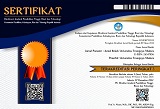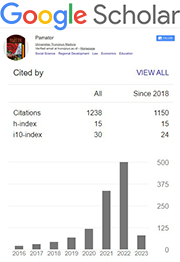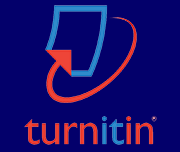Responsibility of Tin Mining Business Licenses for Environmental Pollution Based on the Polluter Pays Principle
Abstract
The purpose of writing this article is to find out and analyze the polluter pays principle concept and its regulations in Indonesia, as well as to find out and analyze the accountability of tin mining business permits for environmental pollution based on the polluter pays principle. Therefore the research method used in this article uses a normative juridical method with a conceptual approach and statutory approach. The article reveals that PPP in Indonesia involves both preventive and repressive measures to address environmental pollution. Polluters are charged with compensation, but regulations like UUPPLH and Minerba Law are more repressive. Implementation involves guarantee, pollution, and conservation funds, funded by APBN/APBD grants/donations. PT. Timah, as the largest tin IUP holder in Babel, has carried out 100% reclamation, but overall, of the total IUP holders in Babel, these funds are apparently not commensurate with the damage that arises as a result of tin mining exploitation activities. And the number of newly reclaimed areas is 1.59% of the total IUP that has been granted. And the form of civil liability is regulated in the UUPPLH, while criminal liability is regulated in the Minerba Law.
Keywords
Full Text:
PDFReferences
Azzahra, Tazkia Nafs, and Yobel Manuel Oktapianus, ‘Menilik Peluang Penerapan Label Karbon (Carbon Labelling) Pada Kemasan Produk Makanan Di Indonesia Sebagai Instrumen Pemulihan Lingkungan’, Jurnal Hukum Lingkungan Indonesia, 8.2 (2022), 310–38
Efendi, A’an, Hukum Pengelolaan Lingkungan (Jakarta Barat: Indeks Jakarata, 2018)
European Community, Consolidated Version of the Treaty Establishing the European Community, Official Journal of the European Communities, 1997, CCCXXV, 173–306
Glazyrina, Irina, Vasiliy Glazyrin, and Sergey Vinnichenko, ‘The Polluter Pays Principle and Potential Conflicts in Society’, Ecological Economics, 59.3 (2006)
Harjasoemantri, Koesnadi, Hukum Tata Lingkungan, Ketujuh Be (Yogyakarta: Gadjah Mada University Press, 2002)
Hayati, Mulida, ‘Perlindungan Hukum Bagi Masyarakat Terhadap Pencemaran Lingkungan Akibat Budidaya Burung Walet’, Supremasi Hukum: Jurnal Penelitian Hukum, 27.1 (2018), 38–54
IMO, International Convention on Oil Pollution Preparedness, Response and Co-Operation (London, 1990)
Joni, Hukum Lingkungan Kehutanan (Yogyakarta: Pustaka Pelajar, 2015)
Khairizka, Putri Novani, ‘TINS Setor Pajak Rp 267.8 Miliar, Ini Dia Rinciannya’, Pajakku, 2022 [accessed 10 September 2022]
Muhdar, M, ‘Eksistensi Polluter Pays Principle Dalam Pengaturan Hukum Lingkungan Di Indonesia’, Mimbar Hukum - Fakultas Hukum Universitas Gadjah Mada, 21.1 (2009), 67–80
Pemerintah Republik Indonesia, Peraturan Pemerintah Nomor 22 Tahun 2021 Tentang Pedoman Perlindungan Dan Pengelolaan Lingkungan Hidup, Sekretariat Negara Republik Indonesia (Indonesia, 2021)
———, Undang-Undang Nomor 3 Tahun 2020 Tentang Pertambangan Mineral Dan Batubara, Pemerintah Republik Indonesia, 2020
Permatasari, Bunga, and Raffles, ‘Mencari Pengakuan Terhadap Perlindungan Keadilan Antar Generasi Dalam Peraturan Perundang-Undangan Di Indonesia’, Jurnal Ilmu Hukum: Fakultas Hukum Universitas Riau, 10.1 (2021), 95–112
Rahma, Hania, Akhmad Fauzi, Bambang Juanda, and Bambang Widjojanto, ‘Fenomena Natural Resource Curse Dalam Pembangunan Wilayah Di Indonesia’, Jurnal Ekonomi Dan Pembangunan Indonesia, 21.2 (2021), 148–63
Rangkuti, Siti sundari, Hukum Lingkungan Dan Kebijaksanaan Lingkungan Nasional, cetakan ke (Airlangga University Press, 2000)
Seerden, René, Michiel Heldeweg, and K Deketelaere, Public Environmental Law in the European Union and the United States : A Comparative Analysis (London: The Hague; London: Kluwer Law International, 2002)
Soewartoyo, and Toni Soetopo, ‘Potensi Sumber Daya Alam Dan Peningkatan Kualitas Sumber Daya Manusia Di Kawasan Masyarakat Pesisir, Kabupaten Bangka’, Jurnal Kependudukan Indonesia, IV.2 (2009), 61–78
Syahrudin, H, ‘Pelaksanaan Reklamasi Lahan Bekas Tambang Di Provinsi Kepulauan Bangka Belitung Melalui Pendekatan Whole of Government’, Journal Of Public Policy and Applied Administration, 3.1 (2021), 25–44
The Rio Declaration on Environment and Development, 1992
Timah, ‘Tahun Ini, PT Timah Tbk Targetkan Reklamasi 400 Hektar Lahan Di Bangka Belitung’, Timah.Com, 2023 [accessed 25 February 2023]
Undang-Undang Nomor 32 Tahun 2009 Tentang Perlindungan Dan Pengelolaan Lingkungan Hidup, 2009
United Nations, Convention On The Transboundary Effects Of Industrial Accidents, 1992
Widodo, Teguh Endi, ‘Upaya Preventif Dan Represif Kerusakan Lingkungan Hidup Melalui Asas Pencemar Membayar (Polluter Pays Principle)’ (Universitas 17 Agustus 1945 Surabaya., 2021)
Wiryadi, Kania Jennifer, Dana Penanggulangan, Instrumen Ekonomi, Prinsip Pencemar, and Pajak Lingkungan, ‘Padjadjaran Law Review Padjadjaran Law Review’, Padjadjaran Law Review, 8.2 (2020)
Yulianti, Burhanuddin Bani, and Albana, ‘Analisa Pertambangan Timah Di Provinsi Kepulauan Bangka Belitung’, Jurnal Ekonomi, 22.1 (2020), 54–62
DOI: https://doi.org/10.21107/pamator.v16i4.22468
Refbacks
- There are currently no refbacks.
Copyright (c) 2023 Sri Rahayu, Bunga Permatasari, Winanda Kusuma

This work is licensed under a Creative Commons Attribution-ShareAlike 4.0 International License.
Jurnal Pamator : Jurnal Ilmiah Universitas Trunojoyo by Universitas Trunojoyo Madura is licensed under a Creative Commons Attribution-ShareAlike 4.0 International License.















.png)